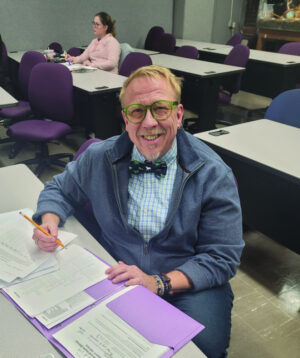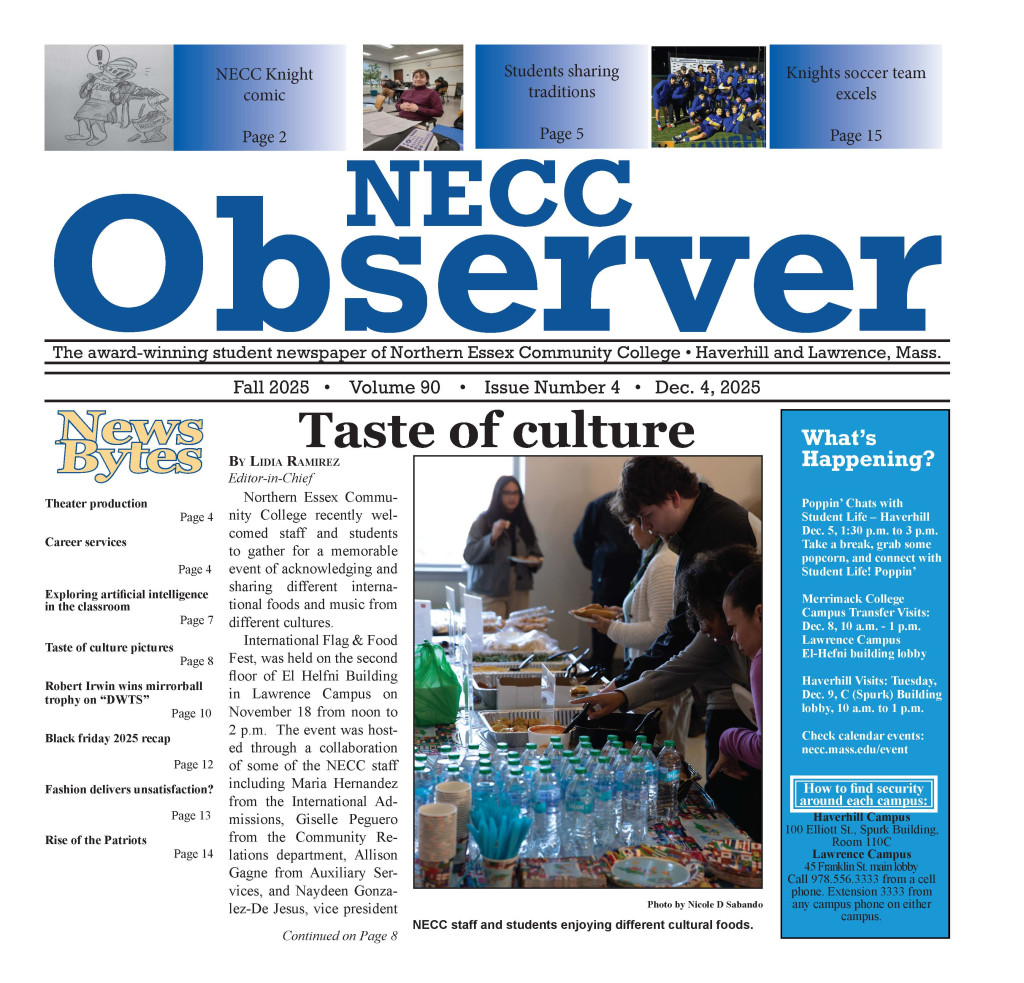
On August 28, in a step towards redefining accessibility to higher education, a state-funded program was launched and is set to reshape the learning landscape for college students aged 25 years and older.
This program provides two years of free college to such students, working to break down financial barriers that have stopped countless individuals from pursuing highereducation while also restoring the value of traditional collegiate experiences in the face of anincreasingly digital world.
I know so many people that would like to go back to school and would like to further their careers, but can’t because they can not afford to go back; says Maya Rivera, 25, American SignLanguage/Deaf Studies major at NECC, echoing the thoughts of countless individuals who laterin their lives have longed for the opportunity to further their education or change their career trajectories.
Other than financial issues, another obstacle that colleges face in today’s digital age is the abundance of free educational resources online. Former NECC dropout, Michael Martinez, 30, IT Network Architect, offers a different perspective on his journey to a successful career in Information Technology. Reflecting on his experience, Martinez said, “I tried the college route, but realized it wasn’t for. Instead, I went online to study for my Network +

certification. It was really convenient and saved me tons of money. I only had to pay for the certification test, which was also online.”
Martinez’s path to success bypassed the traditional two-year college route, embodying the mindset of many people who cannot afford college.
When the internet provides an abundance of free resources that lead to lucrative careers, many opt into taking this route instead.
While Martinez’s story displays the benefits of a solo, online education, many do not experience such success. MassReconnect allows older students an opportunity to find similar success in the traditional educational path without the monetary burden.
Massachusetts Governor Maura Healey, in endorsing this program, emphasized its potential in a press release announcing the programs implementation: “MassReconnect will be transformative for thousands of students, for our amazing community colleges, and for our economy… It will bolster the role of community colleges as economic drivers in our state and help us better meet the needs of businesses to find qualified, well-trained workers.”
MassReconnect’s focus on older learners is working to revitalize the return to an in-person college classroom. When speaking of the utility of online vs. in-person classes, Rivera says, “I think that some classes need to be done in person so that you’re able to retain and practice what you’re learning in person.”, showing that many students still do believe in the benefits of the college experience.
MassReconnect reaffirms this truth and the enduring relevance of colleges in an ever-changing,
digital educational landscape. By prioritizing the education of older learners, the program not only has the potential to transform individual lives but also revitalize the broader educationalecosystem as well as the community’s economy. In doing so, it sends a powerful message: the benefit of hands-on college learning is timeless and should be accessible to all, regardless of age.

